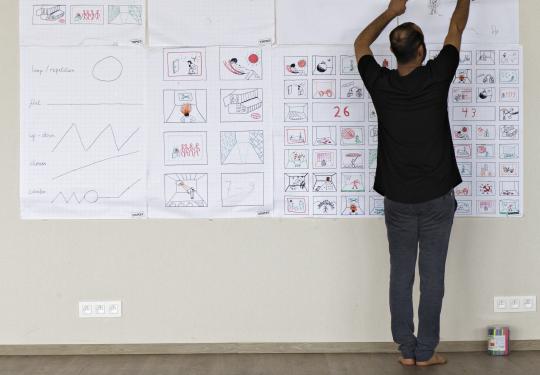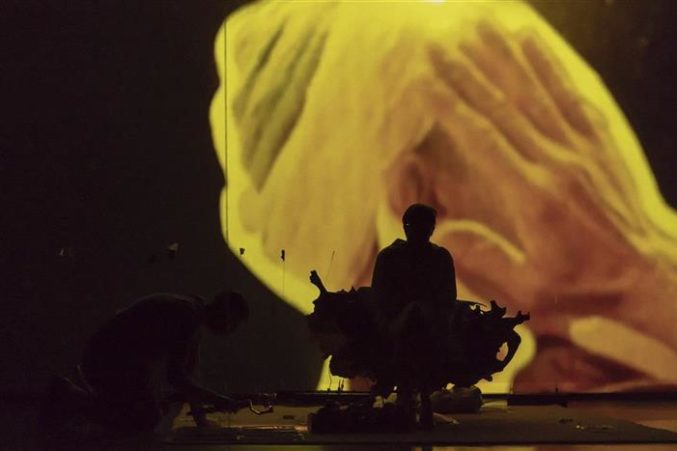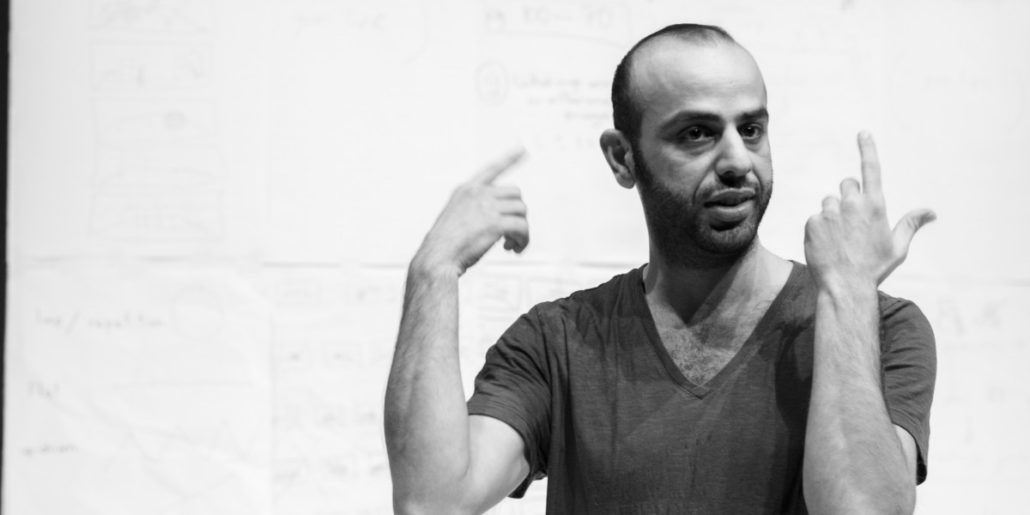Biography
Enkidu Khaled is a theater maker and performer. He studied theater at the Institute of Fine Arts in Baghdad and also worked on several plays in Baghdad. He recently graduated from the DasARTs course in Amsterdam. Since 2008 he has lived and worked in Belgium as a theater maker and performer. Here he directed ‘Crashed’ (2009-2010), ‘Kidnap’ (2011-2012) and ‘dreams of environment’ (2012-2013). He was always interested in how a human being is shaped by its context, and how it relates to its past, present and possible futures. In each of his works he wants to investigate how elements such as society, education, religion, politics, culture and transformation influence the nature and behavior of this human being. In his work he erases the line between the realm of theater and that of performance to arrive at new definitions that move back and forth between the two.
More info
De Brakke Grond – Enkidu Khaled
Photo: Bas De Brouwer
In residentie Working Method
08.07.2017 – 08.07.2017

With Working Method, Enkidu Khaled created a performance with a unique view on the forms that audience interaction can take. He never lets the performance completely out of his hands, but succeeds in involving the audience in learning a dramaturgical trick that can lead to idiosyncratic performance art. Referring variously to his own war traumas and his own desire to construct meaningful theater, he makes his audience complicit in musing about the importance of artistic expressions and reflection.
However, when we are about to fully agree with the proposed working method, Enkidu Khaled knocks the ground under our feet and only then do we feel the layered themes that lie within this artist. Do we really believe that art can save the world? How are you, as an artist, able to embrace uncertainty instead of letting it paralyze you? And as is so aptly said in this performance… Why is thinking so slow and violence so fast?
In residentie Donja Hota
01.01.2023 – 01.01.2023

“When life itself seems lunatic, who knows where madness lies? Perhaps to be too practical is madness. To surrender dreams — this may be madness. Too much sanity may be madness — and maddest of all: to see life as it is, and not as it should be!” – Miguel de Cervantes Saavedra, Don Quixote
Donja Hota starts from the theme of universal revolt in times of social strife and reflects on the agency of individuals to change society.
It begins with a collectively created work where the team of artists challenge their own biographical material. At the same time, they explore the life and work of the celebrated and controversial feminist activist Nawal El Saadawi; and investigate the classic ‘first novel’ of Western Literature, Don Quixote.
Donja Hota is created where reality and fiction intertwine, where the hero and antihero collide, and where the personal and political become one.
This is an invitation to look at the transformative and stubborn idealism that made these artists and their fictional creations change their lives and those of others. The work is created in a horizontal, collaborative way, with transparency built into its form and content. It is a core aim to develop a process that puts feminist principles into practice. Or, as Saadawi would encourage: to not only make connections, through art-making, but also to organize, exulting in the potential threat of collective action.

